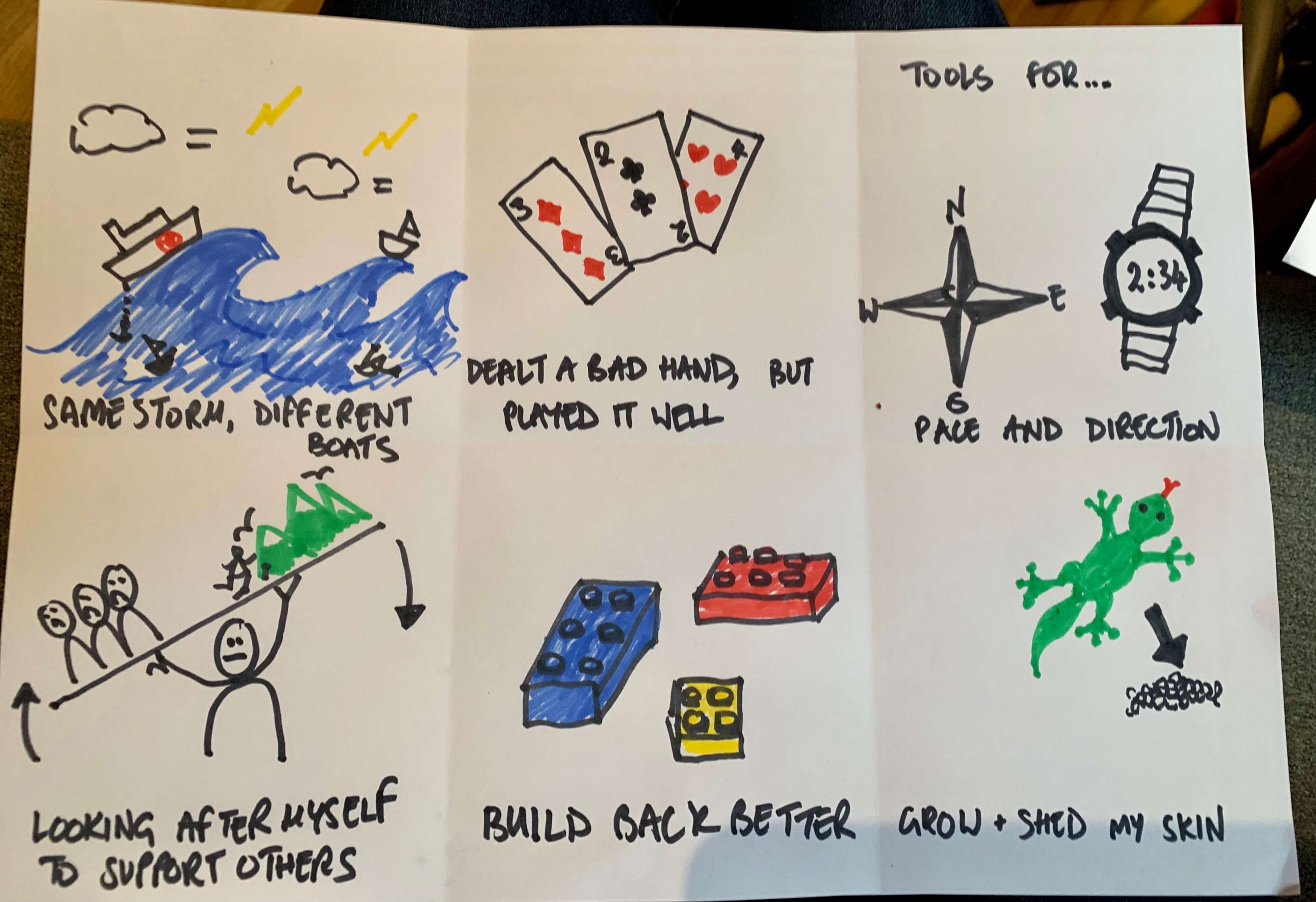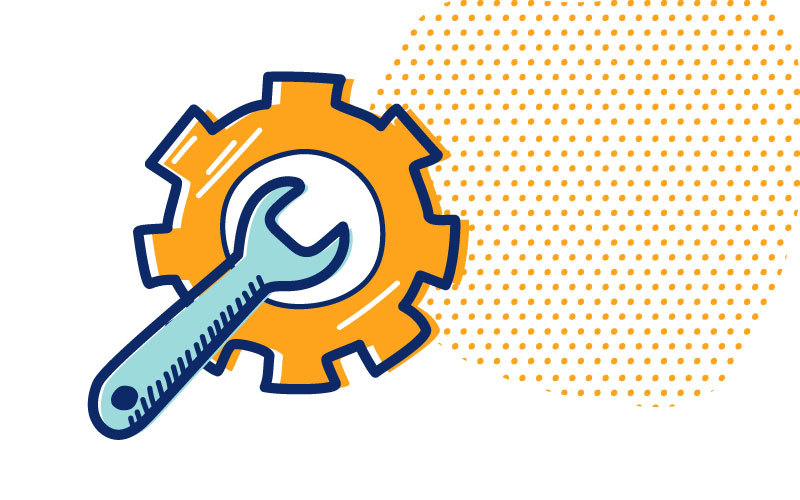
by clairesan | Mar 15, 2021 | Blog, Direction, Momentum
Want to do or change something but know you’re going to find it a struggle? Maybe you;ve tried before and not managed it? Find yourself setting goals or committing to new habits which you find it hard to stick to? Then accountability could be your friend….
When we commit ourselves to achieving something specific and measurable we are more likely to achieve it. Research shows that simply the act of writing it down, or saying it aloud, or rather than thinking it to ourselves means we are more likely to do it. That’s why on training courses you are often encouraged to share publicly the actions you plan to take – as trainers know that’s more likely to embed your learning by leading to practice.
As with any goal, to work well accountability requires clarity – if we say ‘I want to get fitter’ we are less likely to succeed than if we commit to ‘I want to walk 3 miles every day’. And, again as per goal-setting generally, we are more likely to put in the effort required if we own the goal as opposed to if someone else has told us to do it.
I’ve sometimes noticed, as a consultant, a reluctance to clarify measure of success – perhaps because the client fears failure and so being a bit fuzzy about the outcomes allows this question of success to be fudged. It’s true, some things are harder to measure than others, but we can usually make a reasonable assessment ifwe want to.
So accountability can be really simple to achieve – writing it down our goal and sticking it somewhere we’ll see it often can be enough to create the focus we need and encourage action.
Struggling with something and need to take accountability up a notch? Then bring in a social aspect to accountability – tell other people what you intend to do. If you’ve posted on social media that you’re going to run 13 miles that day when it starts rainin and the voice in your head suggests after 6 miles that you could just stop, then the prospect of telling others you didn’t stick to your word can help you keep going.
If you’ve committed yourself publicly to doing something that sense of shame if we have to admit we’ve failed can create another level of accountability. Just as knowing the support and recognition you’re likely to receive can help motivate. It’s like using the carrot and stick technique on yourself.
I was reminded of the power of social accountability when I accepted to sign a Twitter pledge recently not to fly in 2021. I had already decided (pre CV19) not to fly in 2020 and had planned holidays in locations we could reach by car or train, but I was wavering about a race in the Dolomites I have entered for June 2021. Getting there without flights would be very difficult without a lot of additional cost and travel time (days, not hours, extra). But once I’d signed this pledge (and publicly shared in on Twitter, where random strangers had ‘liked’ my pledge) I felt more accountable for this commitment already.
Arguably this technique isn’t too healthy or effective to rely on long-term but it can offer a boost when things are tough and you need that little extra push to keep going. For example, we know that when you start running if you arrange to go for a run with another person you are less likely to change your mind and skip that day. However once you’ve developed a habit of running and begin to enjoy it (honestly, that does happen) then you don’t need the social accountability of a running buddy to get out of the door each day.
As a coach I offer accountability to coachees – encouraging them to set themselves clear targets, specific actions to follow up between sessions, and checking in to see how they are progressing. I’m careful as a coach not to judge ‘success’ in following up goals or actions – that’s for the coachee to determine, they might not have completed an action because they had other priorities or their goals might evolve over time.
But accountability – in the traditional sense of holding oneself to account does have its uses. Above all else, it helps us keep ourselves honest about what really matters to us and whether we do what we say we want to.

by clairesan | Mar 13, 2021 | Blog, Direction
You don’t need me to tell you that it’s been a strange 12 months. But for me it’s also been a period of positive change. As the anniversary of the National LockDown on March 23rd approaches I find myself ready to turn a new page and launch my new website and newsletter, informed by what I learned during these strangest of 365 days.
Whilst I was fortunate compared with many my work and life were still disrupted. Suddenly all the training and facilitation work I’d spent years building up was cancelled overnight, and many clients disappeared onto furlough. There were many times when I worried about friends and family, money, what my children were missing out on whether was I was doing was helpful enough. My confidence really plummeted at one point too.
I threw away the 2020 diary in which I had plotted my plans for the year rather than have to see them scribbled out and be reminded. I took several months off work to look after family in April-June, but during the autumn I took the rare opportunity of a bit of space in my diary to re-think and re-build. This what I discovered:
It takes a pandemic to finally sort out my work-life balance….
I had been trying to reduce work travel for several years, but CV19 forced this change and overnight I went from spending on average 4-5 nights away from home each month and many hours on trains to working from home every day. On a personal level plans to fly for holidays were shelved, and I’ve pledged to stay Flight Free for 2021. I love travel, but I want to reduce work travel significantly even when it’s possible again.
It’s been a year for coaching…
Since training as a coach in 2010 I have used coaching in all areas of my work, every day, as a change consultant, manager, facilitator. But being based in York meant that I was able to work with fewer coachees than I would have liked. Online working has completely changed who I can work with and this year I’ve worked with clients from across the UK – and I have loved being able to spend more of my time coaching.
I have realigned my business model with my values …
I also started to offer Pay What You Can coaching to enable those people experiencing hardship to access support. This meant trusting those who could afford to pay would do so, and being transparent about how I set my ‘guide’ hourly rate to enable people to make informed decisions.
Like many other people I wanted to be more useful in the world but I couldn’t find a way to do this via my work. I considered retraining (not in ‘cyber’) although the options generated by that government careers algorithm didn’t feel right either: boxer, soldier, bingo caller. Seriously though, I considered radical changes in what I do for a living but decided in the end to stick with what I do and instead donate funds to those better placed to make a social impact: Bloody Good Period, Slung Low and You Make It. I decided to cap my earnings at national average and any ‘profit’ I now make above my target income goes to those causes.
Capping my earnings also has benefits for me – it has helped me stop over-working. As a freelancer income can be variable so it can feel hard to say ‘no’ in case a rainy day is around the corner. That has meant there have been many times I have worked too hard and become exhausted. I’m trying to stop hoarding and instead to trust there will be enough work. Another benefit of this is that I now have more time…
I have had space to experiment and learn…
I love discovering new tools, ideas and theories, but in the past it has been hard to find time to research and experiment. 2020 gave me space to read some books, do the courses, and process the learning I’ve wanted to do for YEARS. And it was wonderful! I swear I can almost feel my brain has grown this year.
I’ve also rediscovered my love of drawing and how useful illustration can be for facilitation, learning and coaching thanks to concepts like Visual Thinking. I’ve embraced using metaphors to explore ideas, and visual tools to embed learning.
This period of R&D brings us up to date – to March 2021 – and my appetite to share some of these tools and techniques via my new website and monthly newsletter. I’d love it if you were interested in signing-up to receive the newsletter.
This past year has been hard, but it has also been good to me and I feel grateful as it’s been an absolute shocker for many. In May 2020 I was asked to contribute to an ‘expert panel’ about how arts organisations might respond to the crisis. Not sure what advice I could usefully offer I simply challenged the saying I was hearing a lot at the time ‘we’re all in the same boat’ because quite frankly if there was one thing 2020 did well was it threw into stark relief how unequal our world is. I said we might all be in the same storm but our boats are very different – some people have large yachts, others have tiny rowing boats without oars.
Maybe it’s because this year has been so exceptional that I’ve found myself turning to metaphor more and more, but it’s another form of visual thinking. And right now there’s another metaphor forming as I review the year just gone – I didn’t like the cards I was dealt, but I’ve played them as well as I could.

by clairesan | Feb 28, 2021 | Navigation, Resource, Tool
An exercise designed to enable you to reflect on what motivates and matters to you, based on previous roles.



Recent Comments